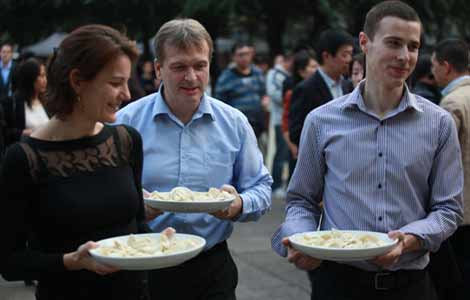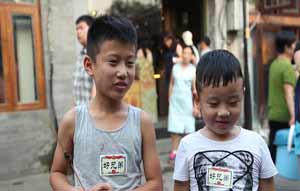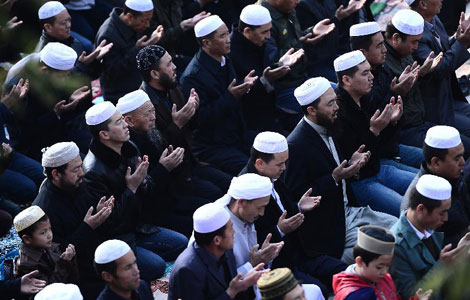15.4% of online whistleblowers are mistresses
Updated: 2013-10-16 16:55
(Xinhua)
|
|||||||||||
BEIJING -- About 15.4 percent of a sample of China's recent online whistleblowers were mistresses who used the Internet to expose corrupt officials after breaking up with them, according to a new report on the country's online anti-corruption efforts.
Other muckrakers included businessmen, journalists, fellow officials and ordinary netizens, with merchants accounting for the largest share of 26.9 percent, according to the report, carried out by the center for public opinion monitoring under the Legal Daily.
The report, published on the Legal Daily's website in September, was based on analysis of 26 typical cases of online real-name reporting that occurred in China from the start of 2013 until September. They mostly concerned cases brought to light through popular Chinese social media Weibo and Tianya.
Government officials were the principal target of the accusations in 76.9 percent of the cases, said the report, adding that the ranks of those concerned extended from county all the way up to ministerial level.
It noted the recent cases of Li Chuncheng, former deputy Party chief in Sichuan province, and Liu Tienan, former deputy chief of China's top economic planning body, both of whom were sacked for suspected "serious discipline violations" after high-profile online whistleblowing.
The report showed that 76.9 percent of the subjects were accused of embezzlement, bribe-taking or other economic problems.
In addition, it added, whistleblowers have increasingly resorted to erotic photos or tapes featuring corrupt officials as they believe sex scandals will probably bring about sensational effects among the public.
The research showed the authorities had responded to 88.5 percent of the cases as of September, completing the handling of 73.1 percent of them.
However, 23.1 percent of the real-name whistleblowers had been either detained or listed as wanted by police on suspicion of rumormongering or "causing trouble," according to the report.
It noted the case of Liu Hu, a journalist detained for fabricating rumors after he made online accusations of wrongdoing against a former senior official in Chongqing.
The central authority's resolve to fight corruption and the recent downfall of a series of highly ranked officials have encouraged the public to expose graft.
Whistleblowers' use of their real names when making tip-offs is also believed to be in the interest of whistleblowers themselves, said the report, adding constant and close attention from the public helps to prevent retaliation against whistleblowers.
Related Stories
Whistleblowers protection key to anti-corruption 2013-08-09 14:04
Whistleblower deserves protection, not criminal charge 2013-08-08 22:13
Whistleblower welcome in China 2013-06-14 17:24
Suspect taken into custody for online rumors 2013-09-30 10:11
Judicial move aims at online rumors 2013-09-10 07:13
Today's Top News
Cargo ship sinks off ROK, 9 die
London to develop further as yuan trading hub
Death toll of Philippine earthquake rises to 99
Overseas M&A deals reach record high in 1st half
ODI set to become more diverse
Renewed move to streamline bloated sectors
Most EU urbanites breathe in pollution
Cooking fumes debated as cause of pollution
Hot Topics
Lunar probe , China growth forecasts, Emission rules get tougher, China seen through 'colored lens', International board,
Editor's Picks

|

|

|

|

|

|





